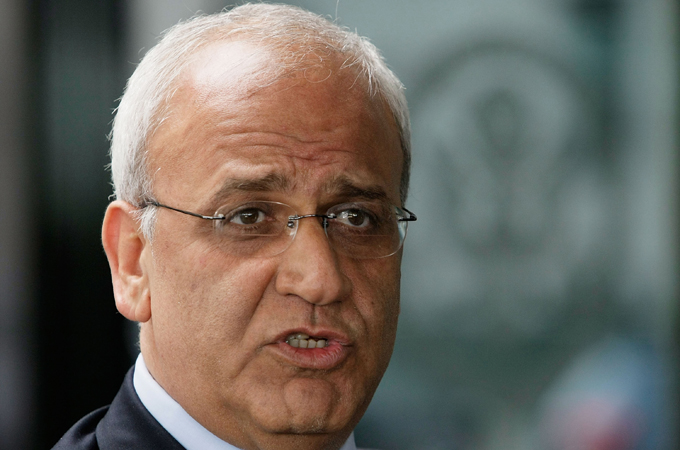The response: How will the world react?
The US has threatened to stop funding the Palestinian Authority, while Europe has said little about its reaction.

 The US and Germany have promised to oppose the measure, while Britain won’t make a decision for several weeks [EPA]
The US and Germany have promised to oppose the measure, while Britain won’t make a decision for several weeks [EPA]If the United Nations votes to approve Palestine’s bid – either for full recognition or “non-member observer status” – the Palestinian Authority could face financial consequences from the United States and even more drastic action from the Israeli government.
The vote will probably have limited positive impact on Palestine’s foreign relations, because 120 countries – a majority of the UN’s membership – have already recognised a state of Palestine; the PA operates diplomatic missions in many of those states.
Most of the countries which will recognise Palestine, in other words, have already done so.
So the more urgent question is the negative consequences: How will a handful of politically-powerful states – the United States, members of the European Union, and Israel – would react to a “yes” vote?
‘There will be consequences’
Washington, for its part, has already threatened to punish the Palestinian Authority for pursuing a vote at the UN.
Daniel Rubinstein, the US consul general in Jerusalem, met late last month with Saeb Erekat, the chief Palestinian negotiator.
 Erekat said Rubinstein also promised a US veto of any statehood resolution at the UN Security Council [Getty]
Erekat said Rubinstein also promised a US veto of any statehood resolution at the UN Security Council [Getty]Rubinstein reportedly threatened “punitive measures” if the PA moves forward with the vote, including a cut in US aid, according to a summary of the meeting provided by Erekat’s office.
“In case the Palestinian Authority seeks to upgrade its position at the UN through the General Assembly, the US Congress will take punitive measures against it, including a cut in US aid,” Rubinstein said, according to the statement.
The State Department told Al Jazeera that Erekat’s summary did not provide “an accurate portrayal of the US position.”
But members of Congress, Republican and Deomcrat alike, have threatened such cuts. Howard Berman, the top Democrat on the House foreign affairs committee, said a “yes” vote would jeopardise what he called Washington’s “generous” funding of the PA.
“I believe we are the most generous nation in the world in that regard,” he said in July. “So I think our Palestinian friends should understand: If they persist in pursuing a unilateralist path, inevitably, and however regrettably, there will be consequences for US-Palestinian relations.”
Ileana Ros-Lehtinen, the Florida Republican who chairs the committee, is even drafting a bill that would slash funding for the United Nations if it recognises a Palestinian state.
The US government provided roughly $470m to the Palestinian Authority last year, more than 10 per cent of the authority’s $3.7bn annual budget. Foreign donations make up roughly one-quarter of the PA’s annual budget.
Some lawmakers have also suggested shuttering the PA’s diplomatic mission in Washington.
Britain, France still undecided
Less clear is how the European Union’s 27 member states will react.
Few EU members have even said how they plan to vote on the measure, though Catherine Ashton, the EU foreign policy chief, said late last month that peace “can only be achieved through negotiations,” suggesting that the EU will oppose the Palestinian bid.
Four states – Germany, Italy, the Netherlands, and the Czech Republic – have already said they plan to vote against it. Eight EU members have already recognised a Palestinian state, but that’s no guarantee they will vote in favor – after all, the Czech Republic is one of those eight.
Britain and France, the two undecided “key players” in Europe, have both said they will only make a final decision after reviewing the Palestinians’ final application.
‘Realities on the ground’
Israel’s reaction is also uncertain, though high-ranking Israeli officials have made a number of serious threats in recent months.
Ha’aretz reported in July that Israeli prime minister Binyamin Netanyahu might “call off the Oslo Accords” in response to the vote. Foreign minister Avigdor Lieberman has also mentioned the idea.
The accords are the legal foundation for the Palestinian Authority – they give the PA administrative control over parts of the West Bank – so annulling them would conceivably strip the PA of its authority.
Danny Danon, a Likud party member and a deputy speaker in the Knesset, has also proposed annexing the entire West Bank following a statehood vote.
Analysts in Israel say both steps are unlikely, because they would give Israel full responsibility for administering the West Bank.
“If the PA collapses, who has to take care of the West Bank? Israel. Israel will be responsible,” said Menachem Klein, a political science professor at Bar-Ilan University and a former adviser to Ehud Barak’s government. “That’s a heavy burden on Israel, especially considering the recent socioecnomic demonstrations… the cabinet is not ready to go full blast on these measures.”
A more likely outcome, Klein said, is increased settlement-building in the occupied West Bank – “establishing facts on the ground,” as he put it.
Israel has already approved a raft of new settler homes – 900 in Har Homa, 277 in Ariel, 1,600 in Ramat Shlomo – in the past few weeks, and more could follow: Eli Yishai, the interior minister, is reportedly considering more than 2,500 additional homes in various East Jerusalem neighbourhoods.